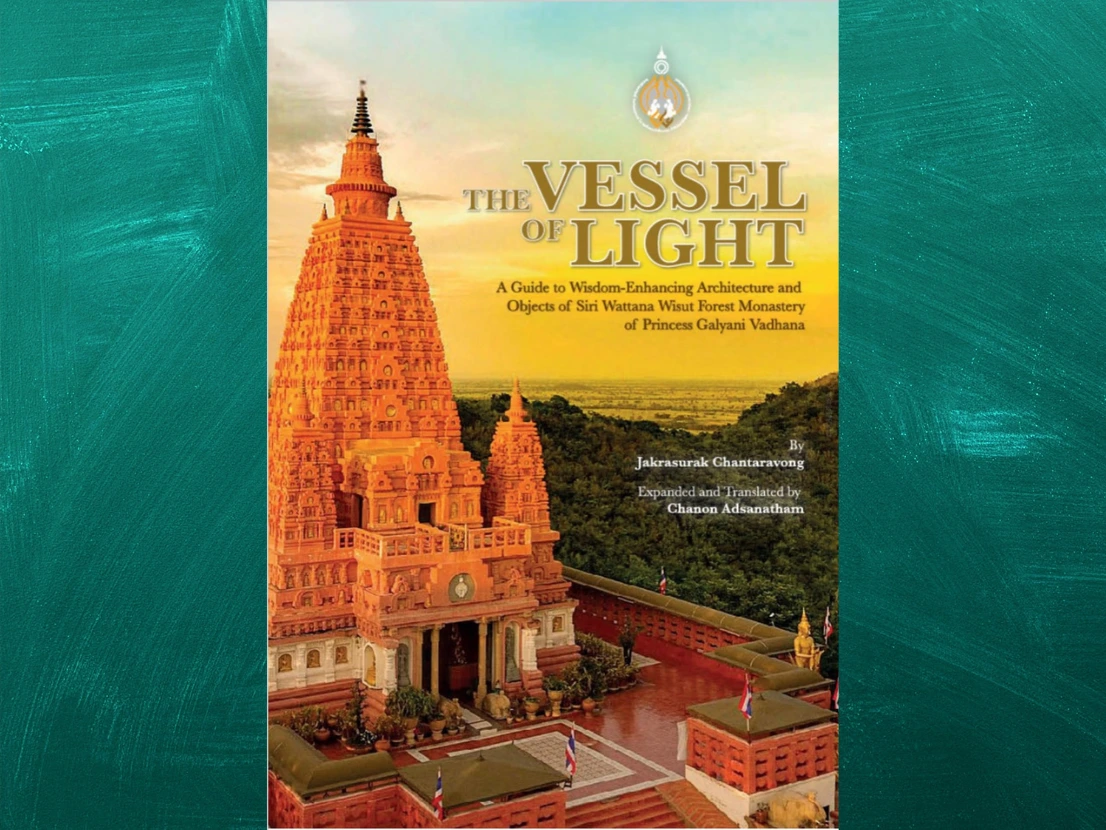
Originally written by Jakrasurak Chantaravong in 2008 and expanded, updated and translated by Chanon Adsanatham in 2020, The Vessel of Light: A Guide to Wisdom-Enhancing Architecture and Objects of Siri Wattana Wisut Forest Monastery of Princess Galyani Vadhana provides an introduction to the sites, meaningful architecture, and artistic objects of Siri Wattana Wisut Forest Monastery of Her Royal Highness, a popular landmark and cultural destination in Nakhon Sawan, Thailand. The text details the history and religious and artistic significance of the Monastery’s attractions and objects—and how they are unique from other temples in the world. Written in an easy-to-understand format, readers do not need prior knowledge of Buddhism or Thai tradition to enjoy the information.
Among some of the Monastery’s major attractions include modified replicas of five major Buddhist pilgrimage sites in India and Nepal: places of the Buddha’s birth, enlightenment, first preaching, passing, and cremation. These five sites of the Monastery have been reconstructed over the hills of the Monastery to reflect Thai artistic merits, making them distinct from the originals in South Asia.
Containing 262-page colorful pages, The Vessel of Light is a useful resource for researchers and students who are interested in Thai Theravada Buddhist philosophy, Buddhist arts and architecture, Thai Buddhism, or sacred travel. The translated English version has been extensively revised to incorporate insights about the sacred sites from the Monastery's headmaster and designer: Phra Bhramavajirakorn. In addition, the text has been updated to include details about new landmarks built after the publication of the first and second editions of the original Thai text (first released in 2008 and subsequently in 2010).
About the Translator
Chanon Adsanatham (PhD Miami University) is assistant professor of rhetoric and writing at Thammasat University in Thailand. He specializes in comparative rhetoric, Thai cultural rhetoric, and digital and multimodal composition. His works on Thai rhetoric, the queering of Avalokiteshvara, and digital writing pedagogy have appeared in The Journal of the History of Rhetoric, Re/Orienting Writing Studies, and Computers and Composition. Chanon's dissertation on Thai kaya karma rhetoric received the award for best thesis in the field of rhetoric and composition in 2015.

